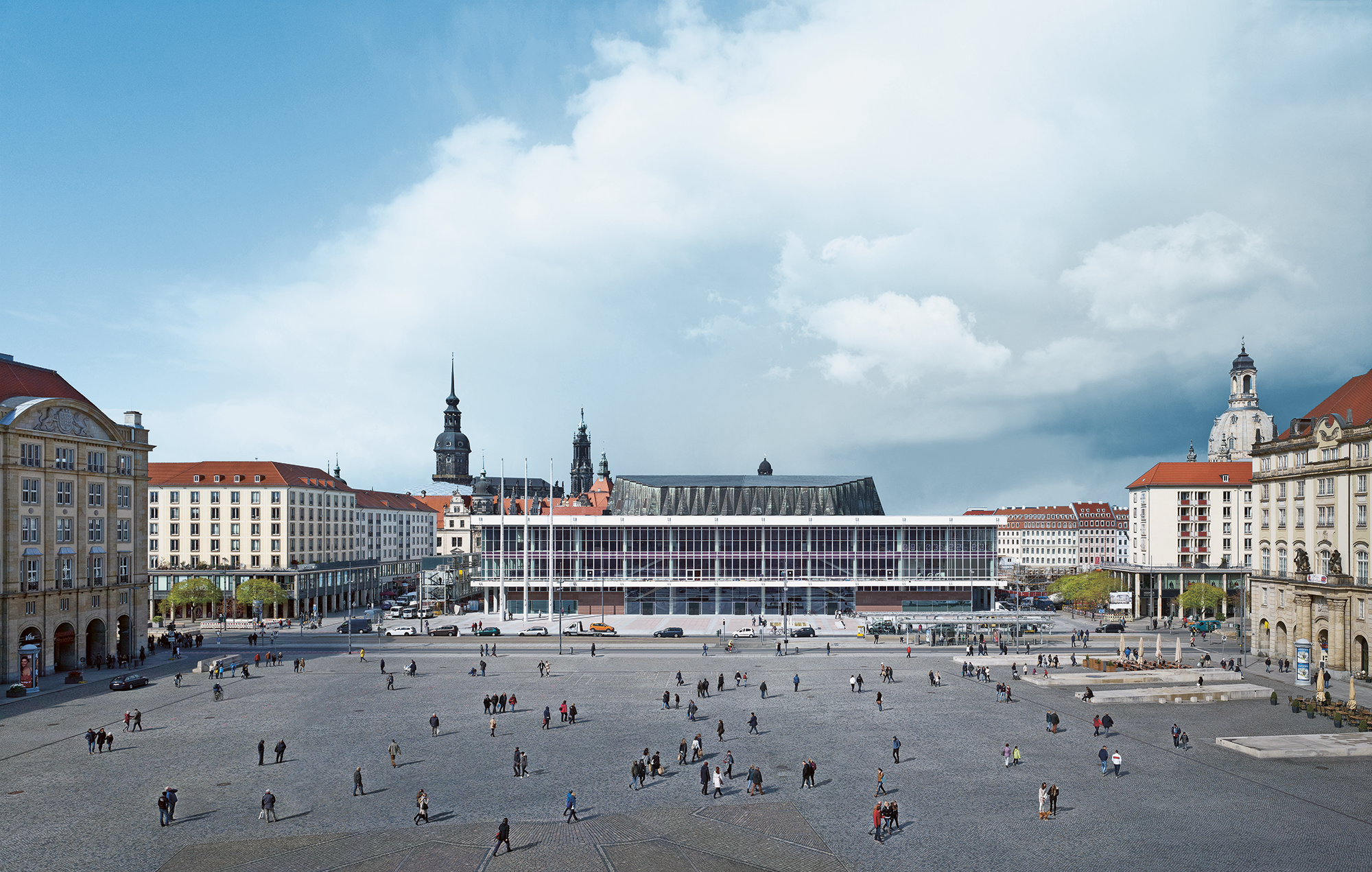
改造设计 gmp
1969年设计 沃尔夫冈·亨施,莱奥波尔德·维尔
项目地点 德国德累斯顿
建成时间 2017年
本文文字由gmp提供。
原德累斯顿文化宫的多功能大厅,用途杂而不专。为了解决市爱乐乐团的搬迁问题,必须建造一座为乐团演出功能而设计的新音乐厅。与此同时,这一举措也使其他公共文化机构得以迁入音乐厅周边区域,从而使文化宫不再仅限于音乐会用途,而是全天候向城市公众开放。
The multifunctional hall inside Dresden’s Kulturpalast was able to do a little bit of everything, but could do nothing well. For the relocation of the philharmonic orchestra, a new concert hall had to be installed that was tailored to its function. At the same time, this would enable other public cultural institutions to move into the building in the space around the hall, thus opening up the Kulturpalast not only for concerts, but also for the urban public throughout the day.
▲ 项目视频介绍 ©Lukas Schmid
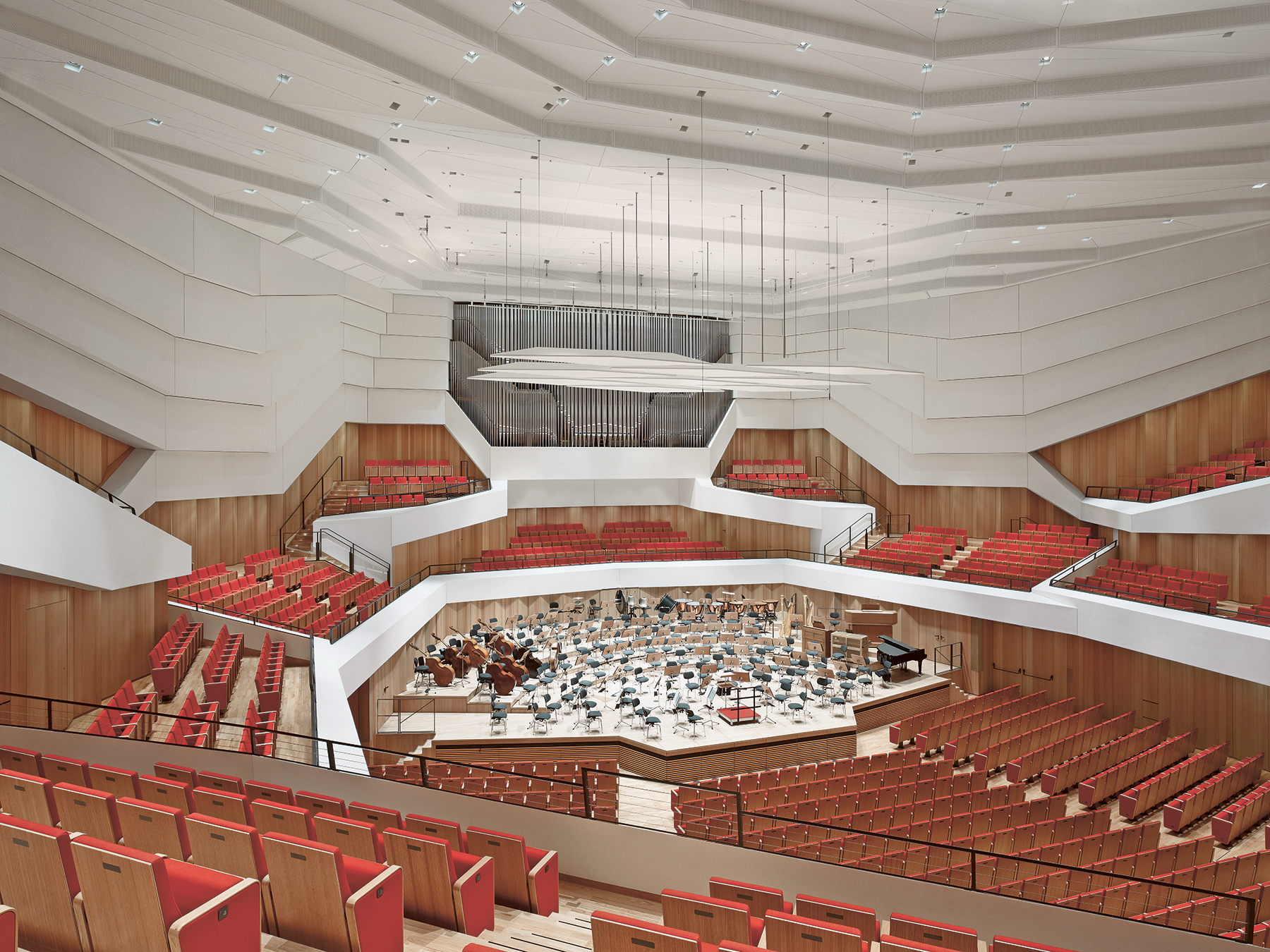
1969年—2012年
由沃尔夫冈·亨施(Wolfgang Hänsch)和莱奥波尔德·维尔(Leopold Wiel)设计的德累斯顿文化宫,是民主德国现代主义的标志性建筑。它矗立在“老市集”与“新市场”之间,位于德累斯顿历史悠久但在1945年2月13日遭到了严重破坏的老城中心。
Dresden’s Kulturpalast, designed by Wolfgang Hänsch and Leopold Wiel, is an icon of the modern style in the GDR. Located between the Altmarkt (Old Market Square) and
Neumarkt (New Market Square), it stands at the center of Dresden’s historic old city, which was largely destroyed on February 13, 1945.
由于采用了“可倾斜式木地板”(Kippparkett)这样一种可移动的升降平台系统,多功能大厅既可以在平地上当作宴会厅,也可以作为带有固定座位的阶梯式礼堂使用。然而,这个无所不能的大厅在举办音乐会时音效并不理想。大厅三面被三层通高的门厅和楼梯设施环绕。门厅和楼梯采用全玻璃幕墙,通透地向城市敞开,夜晚在灯光的照耀下显得格外迷人和生动。尽管如此,文化宫只在举办活动时才开放和使用。
Thanks to its “tilting parquet,” a system of movable, rising stands, the multifunctional ballroom could be used both as a level banquet hall and as an auditorium with ascending rows of fixed seats. How -ever, the concert acoustics in the large multipurpose hall were mediocre at best. It was surrounded on three sides by three-story foyer areas and staircases with fully glazed, transparent facades that opened it up to the city and were extremely attractive, especially at night when illuminated and animated. Nevertheless, the Kulturpalast was only open and used for events.
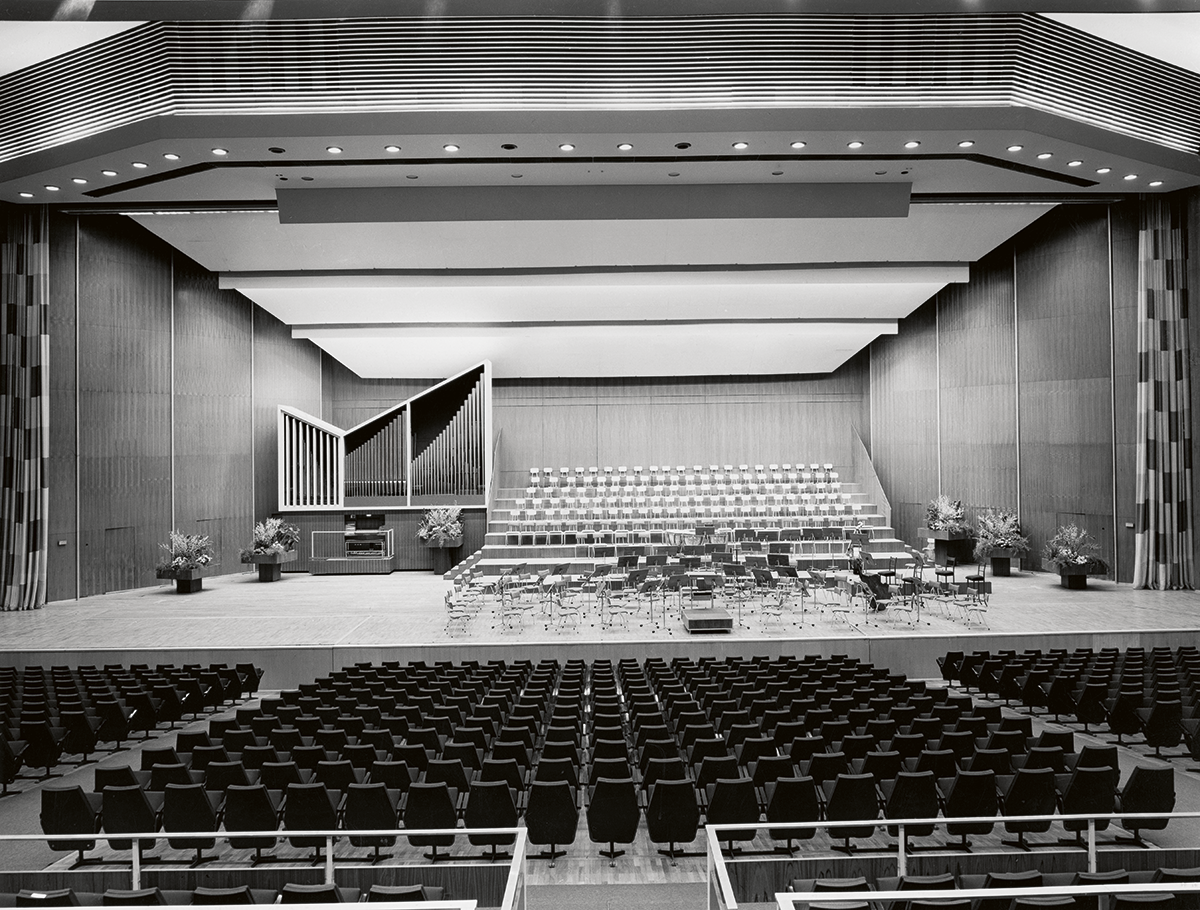
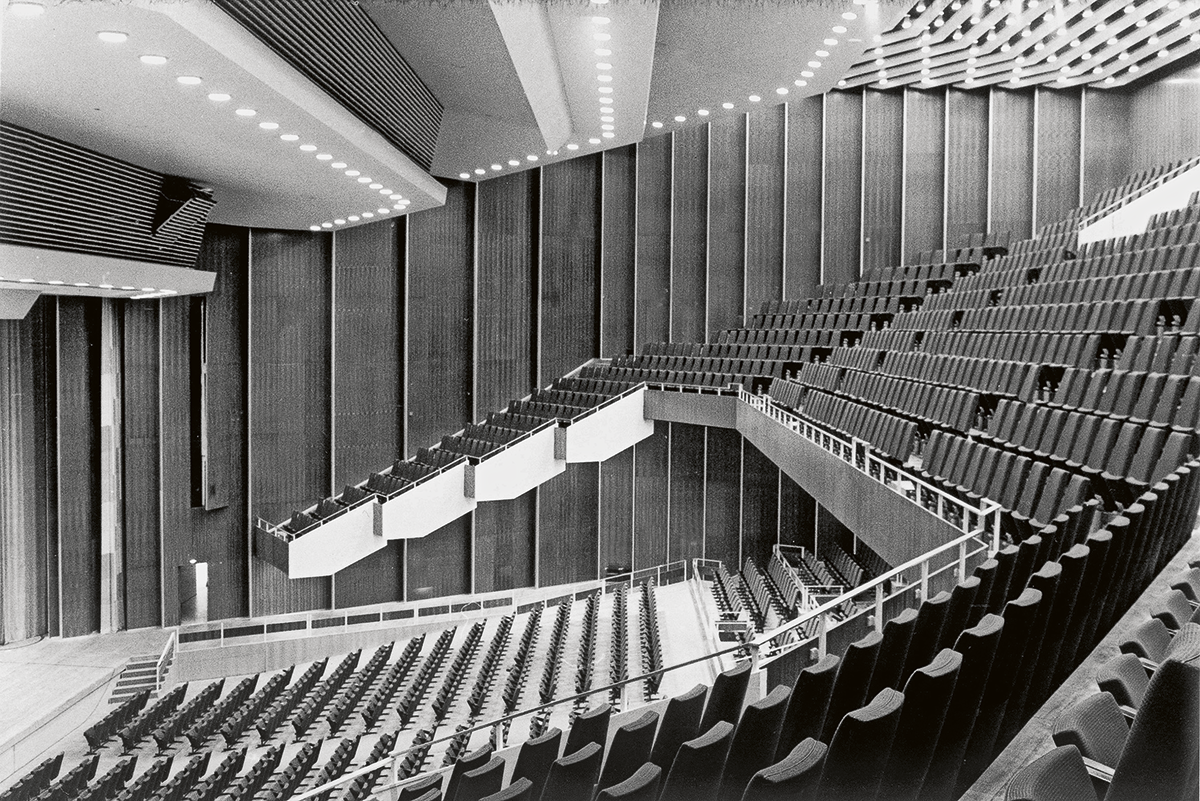
2009年—2017年
尽管这座现代主义的代表建筑有时被认为是对巴洛克式德累斯顿的挑衅,但文化宫的建筑品质是无可争议的,即使这座建筑还没有充分发挥其全部潜能。在2009年的建筑设计竞赛中,我们提出了一个三重策略:在内部,新增一个全新的音乐厅,以满足乐团对高品质音效的需要。建筑外立面则需要经过非常谨慎的、原汁原味的修复来恢复其原貌。额外的功能要求,如市立中央图书馆、喜剧剧场和萨克森建筑文化中心,则围绕着音乐厅分布在原来的门厅和会议区。我们改建工作的核心是为所有功能提供一个宽敞的共享前厅,以实现各种功能的混合使用,并首次将文化宫作为真正的“城市客厅”向社会开放。
Although this icon of the modern style was sometimes construed as a provocation in Baroque Dresden, the Kulturpalast’s architectural qualities are undisputed — eventhough the building didn’t realize its full potential. For the architectural competition in 2009, we proposed a threefold strategy: insertion in the interior of a totally newconcert hall that would meet the philharmonic orchestra’s high acoustic requirements; an extremely meticulous refurbishment of the exterior that would be faithful to the original; and the distribution of the specified additional functions — the city’s central library, a cabaret theater, and the Zentrum für Baukultur Sachsen — in the former foyer and conference spaces surrounding the concert hall. A central element in our conversion was the addition of a spacious common foyer to be shared by all the functions, thus ensuring a mixture of uses and of visitors and, for the first time, opening up the Kulturpalast to urban society as a genuine “municipal living room.”
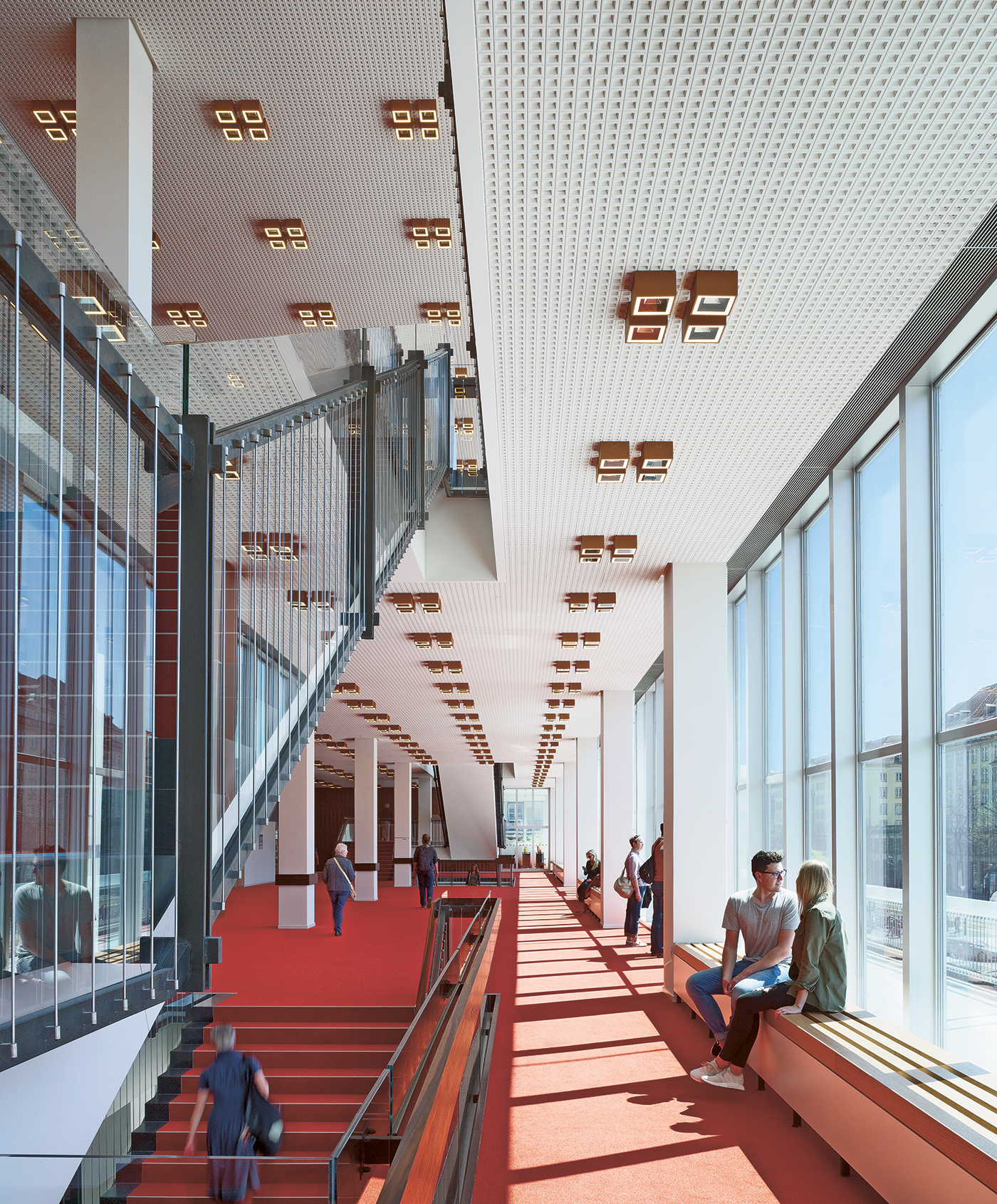
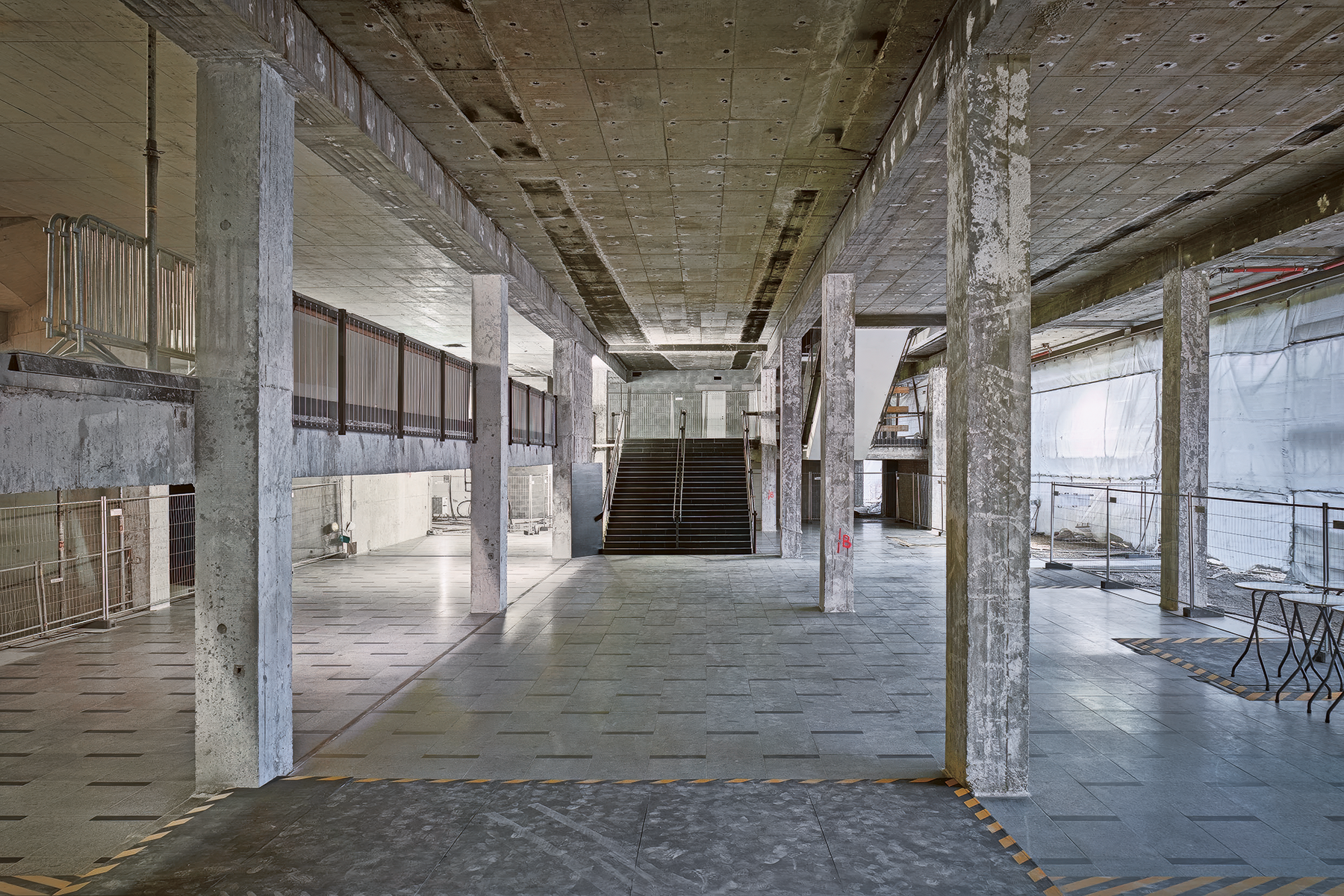
拥有1800个座位的新音乐厅与汉斯·夏隆(Hans Scharoun)设计的柏林爱乐音乐厅类似,采用梯田式的“葡萄园”空间布局。改建后,文化宫的音效首次达到了国际标准。新的音乐厅略小于旧厅,这样就可以利用腾出的空间改善通道和安置部分技术设施。尽管音乐厅是全新建造的,但门厅、原先的音乐室舞台和外立面都经过精心的修复恢复了原貌。与沃尔夫冈·亨施沟通后,我们按照原始设计图重新改造了一楼的立面。我们决定不用新的金属型材来组装外立面,因为这会改变原始的整体效果。相反,我们逐段拆卸、修复原有的窗户构件,在尽量做好保温层的前提下,最后再镶嵌上新玻璃。
With its terraced layout, the new 1,800-seat concert hall follows the “vineyard” model, just like the Berlin Philharmonie designed by Hans Scharoun. Thanks to the conversion, the Kulturpalast’s acoustics now correspond to international standards for the first time. Because the new hall is slightly smaller than the old one, space was freed up that provides better access and accommodates some of the building services. Whereas the hall is all new construction, the foyer, areas of the former studio stage, and the facades have been carefully restored to their original condition. In consultation with Wolfgang Hänsch, the ground-floor facades were converted so as to conform to the original plans. We decided against using new metal sections in the facade because they would have significantly altered the original overall impression. Instead, the original window elements were removed section by section, restored, insulated as far as possible, reinserted, and furnished with new glazing.
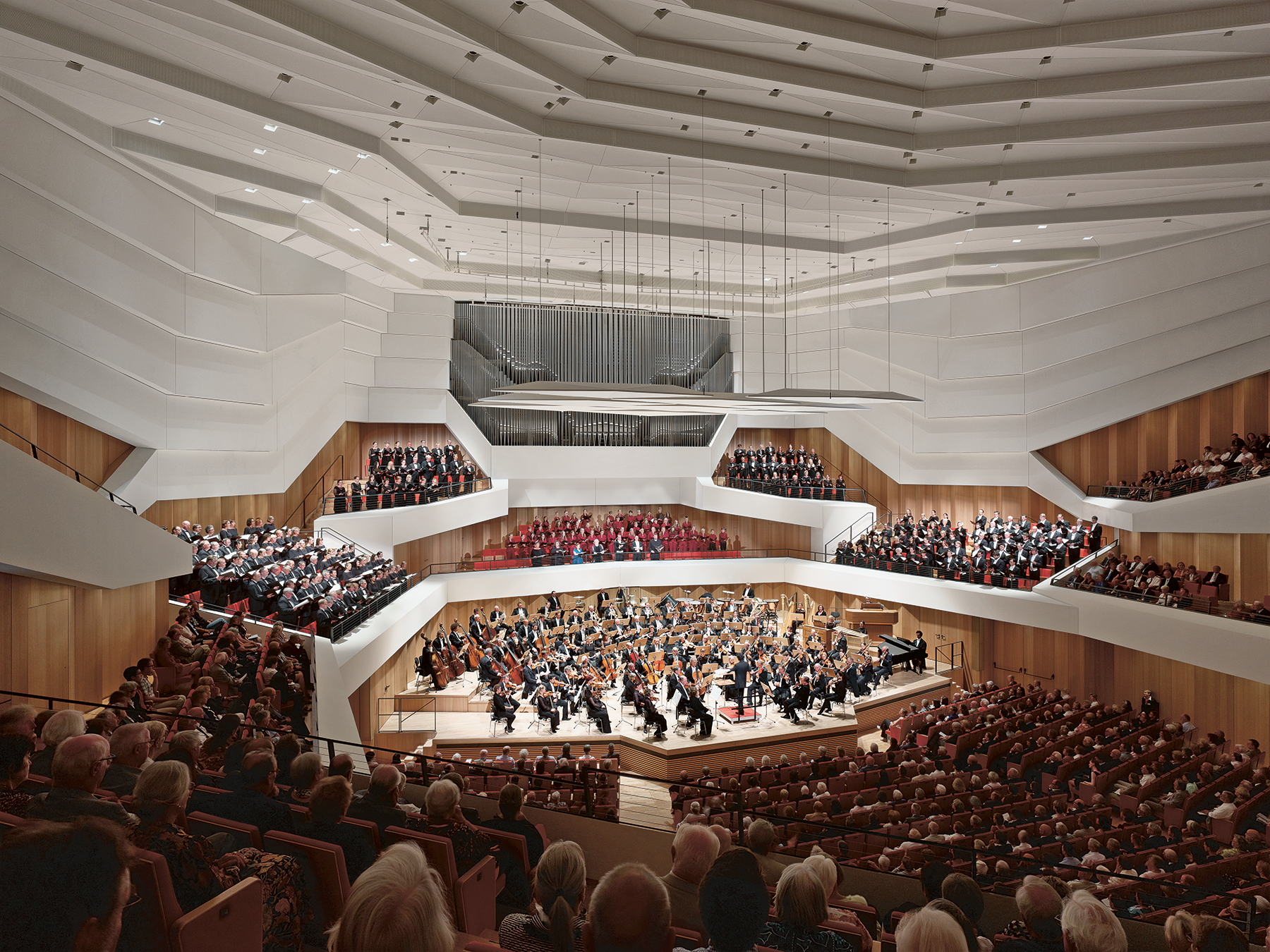
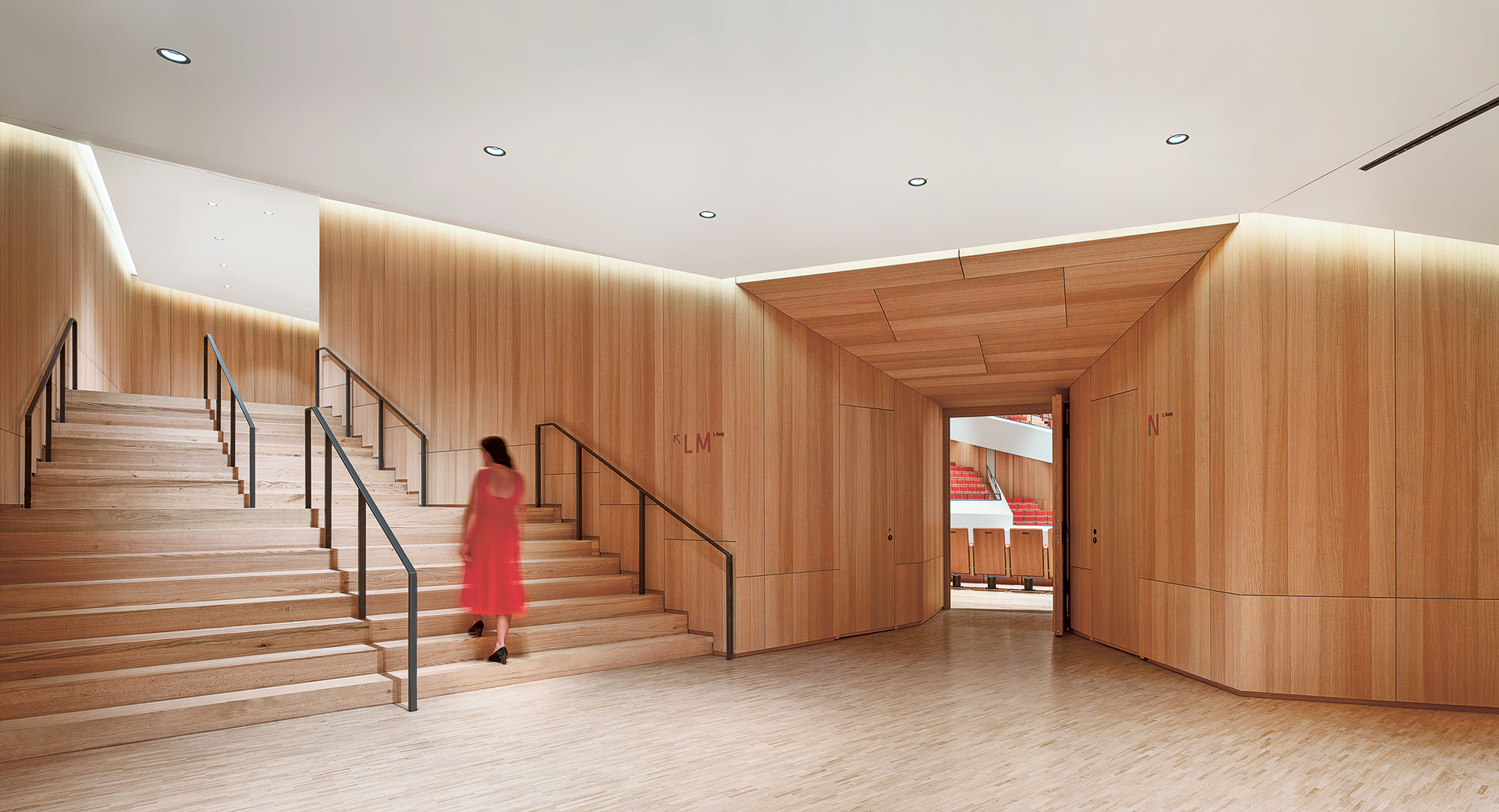
通过改建,我们不仅打造了一座出色的音乐厅,还通过重新规划和组织周围未被充分利用的前厅,在城市中心创造了一个充满活力的建筑,每天都有丰富多彩的节目。这座建筑就像一个公共的城市客厅,每天向访客张开双臂——从早晨在图书馆喝咖啡、看报纸的读者,到晚上盛装出席音乐会的观众。尽管进行了全面的更新改造,但文化宫的外观几乎保持了原貌。
The conversion not only resulted in an outstanding concert hall but, by reprogramming and reorganizing the underused foyer surrounding it, also created a building that’s constantly animated by a colorful, mixed program in the middle of the city, with doors that are open almost the entire day, like a public, urban living room — from the coffee-drinking, newspaper-reading library patrons in the morning to the finely dressed concertgoers at night. And despite the extensive update, the exterior of the Kulturpalast appears practically unchanged.
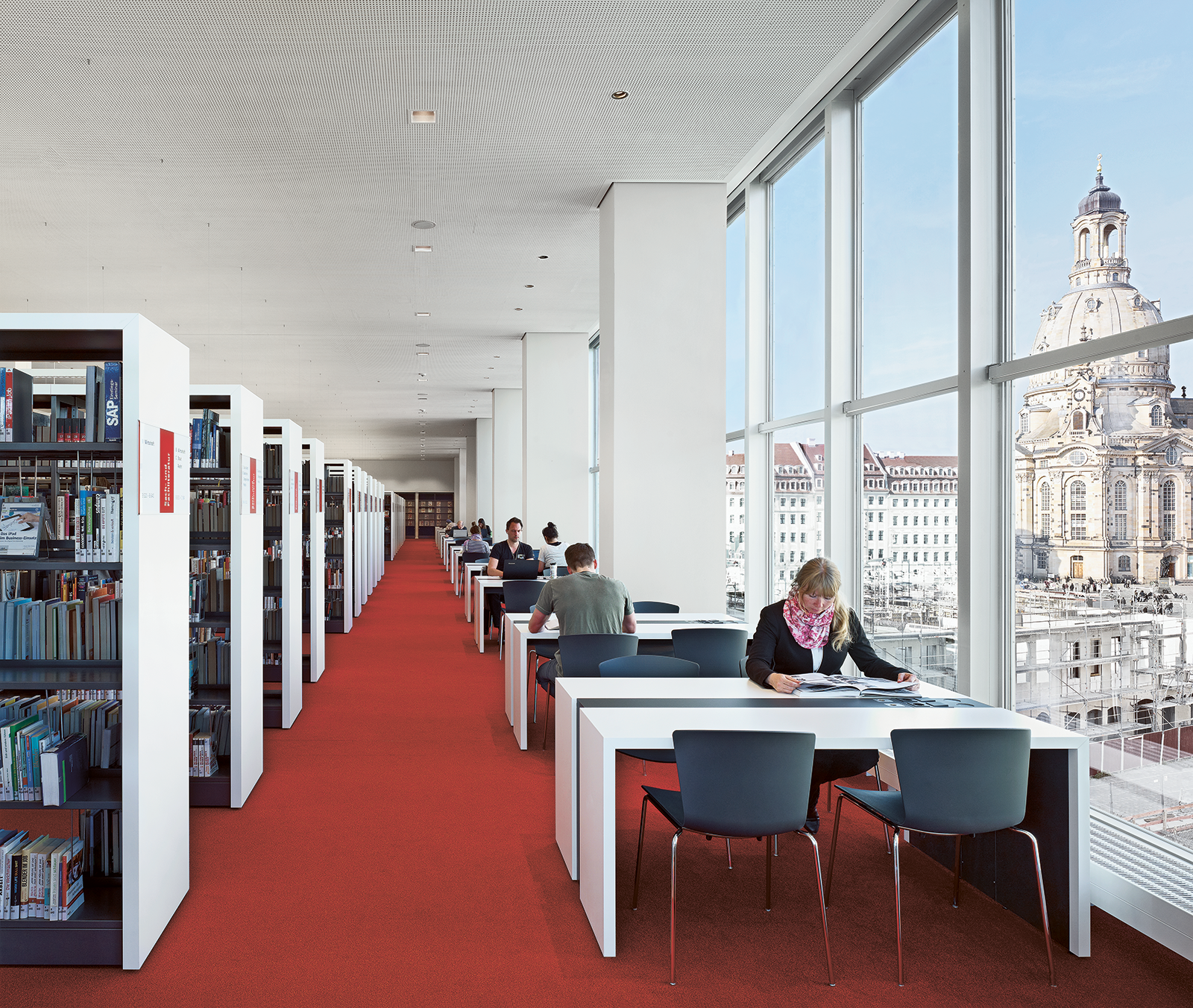
设计图纸 ▽
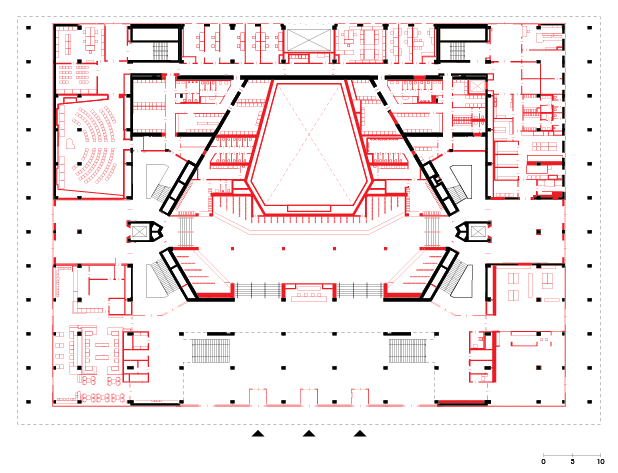
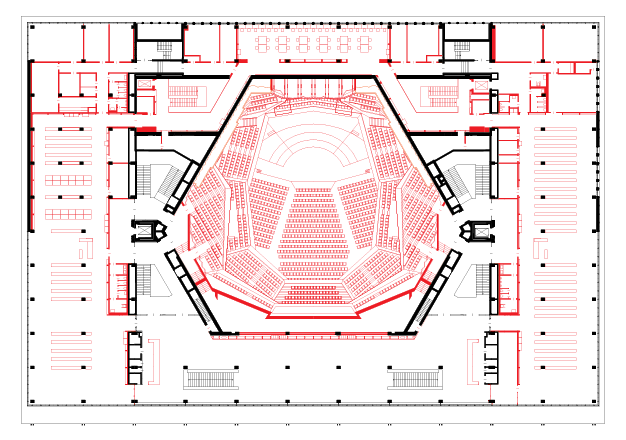
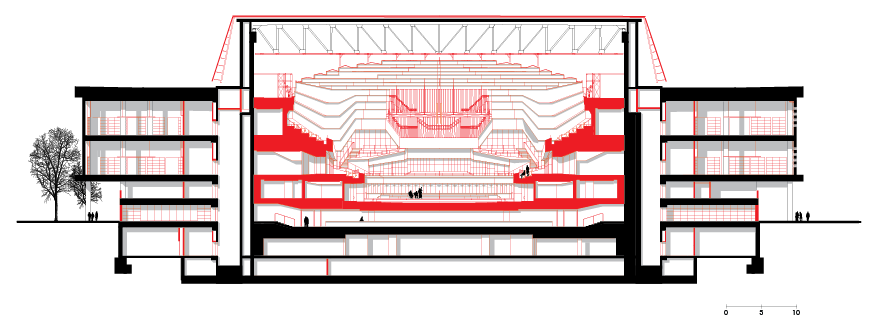
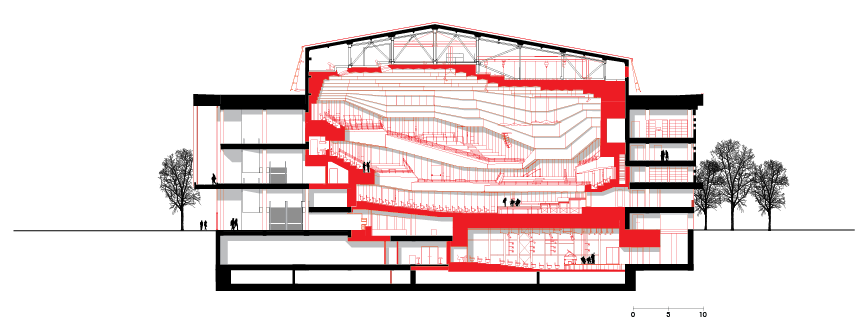
项目信息
德累斯顿文化宫
德国
2017年
业主:德累斯顿市政房地产管理有限公司
1969年设计:沃尔夫冈·亨施,莱奥波尔德·维尔
版权声明:本文由gmp授权发布。欢迎转发,禁止以有方编辑版本转载。
投稿邮箱:media@archiposition.com
上一篇:勒·柯布西耶的高山大海|有方讲座98场介绍
下一篇:桐集 / 名谷设计